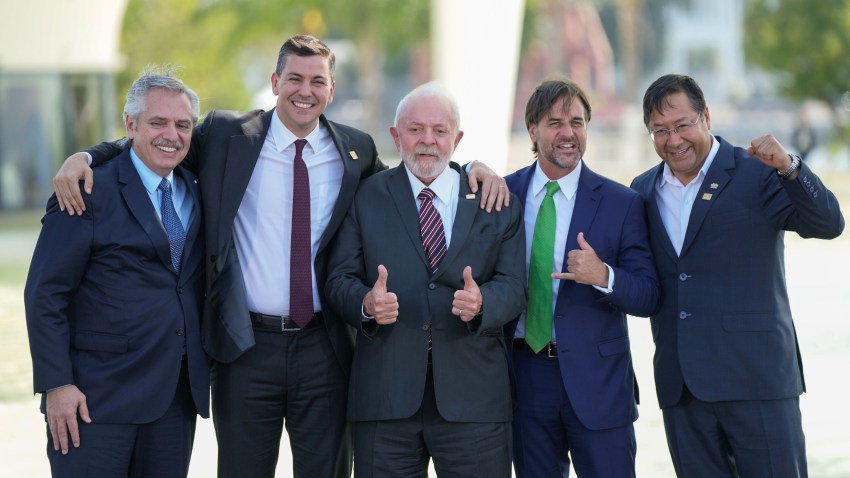Every time the political winds shift in South America, the Mercosur trade group heads in a new direction. Last week’s leaders’ summit was no exception. Meeting in Rio de Janeiro, the group welcomed Bolivia as its newest member, condemned Venezuela’s aggressive posture toward Guyana and collectively worried about Argentine President-elect Javier Milei’s plans. Meanwhile, a free trade agreement between Mercosur and the European Union that has been in the works for two decades hit yet another speed bump, once again postponing its finalization and raising questions about whether Mercosur can ever reach its potential.
But at the same time, the Mercosur leaders agreed with their counterparts from across South America to invest $10 billion in infrastructure, mostly in transportation, to connect the countries of the region and give a renewed sense of purpose to the organization.
That is a lot of ground to cover and a strange mixture of good and bad news for the grouping.

